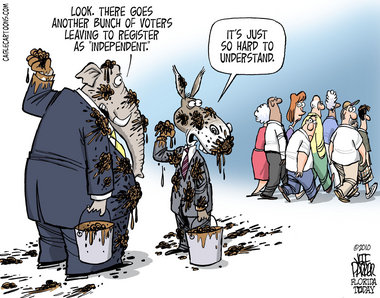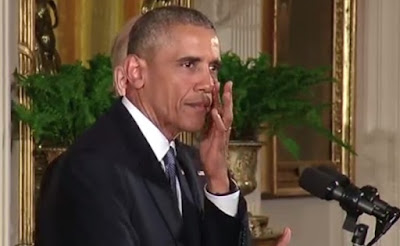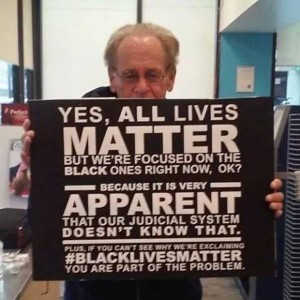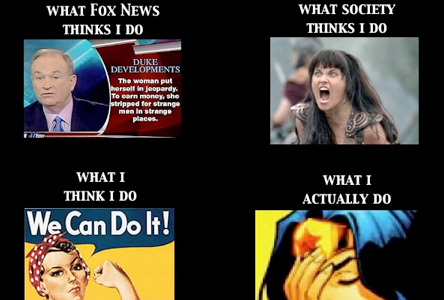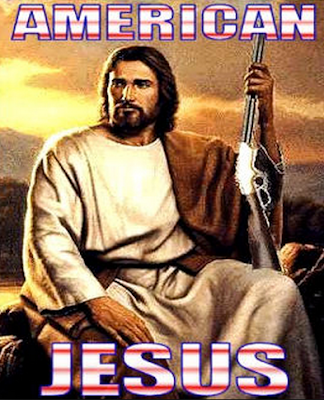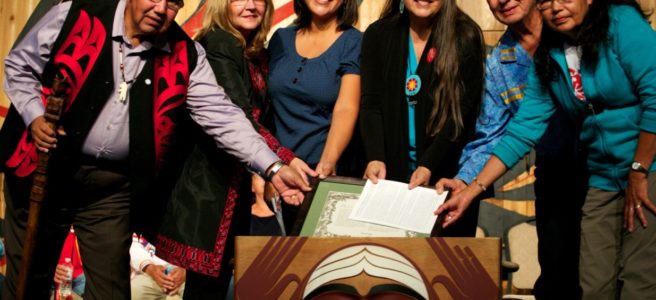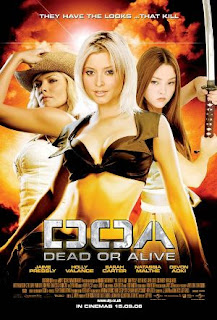The amount of hate out there for SJWs at the moment is insane. I haven’t seen this much vitriol directed at a social group since around 2010 when “hipster hate” was just beginning to hit its stride. The backlash against SJWs has been playing out quite visibly lately, which has made me feel a need to put out a more comprehensive post on it than I have in the past. I had originally intended to put up one big piece on the current situation, but it ended up being really sprawling and incoherent, which has prompted me to split this into two parts. In this part, I’m going to try to unpack some of the issues people have against SJWs, while also pointing out some of my own criticisms about both sides of the divide. If you’re reading this on the publication date then be sure to come back in a couple days for my response to one of the current controversies that SJWs have been dragged into and some conclusions on the matter.

The cynical viewpoint… about half of these were cherry-picked from less-important titles and a couple of them are actually player customizable. It is emblematic of a the wider problem though when you consider that these are just game heroes from around 2005-2010.
WHAT IS AN “SJW”?
This is the million dollar question, isn’t it? Believe it or not, it is actually harder to define what an “SJW” is than you would expect. This is mainly because it is an insult thrown around by people who disagree with people advocating social justice causes. Naturally, I like the Rational Wiki’s definition which claims that it is “used primarily by right-wingers on the internet […] to describe liberals, progressives, feminists, and supporters of political correctness. The term is used to insinuate pretense and to label opponents as disingenuous people engaging in social justice arguments to raise their personal reputation”. In many ways, this makes it seem to be similar to the “check your privilege” phrase used by some of the shittier SJW-types to shut down opponents without actually engaging them.
On a more neutral note, Know Your Meme has a brief article about the rise of social justice blogging (basically the source of SJWs as a group) and has some very fair criticisms of the movement. They state that “the group has been criticized for propagating unreliable information and espousing slacktivism and herd mentality, as reflected in the pejorative term ‘social justice warriors'”. That said, they acknowledge that “the influence of online activism on public opinion has grown significantly with the emergence of social justice bloggers”, meaning that these “armchair activists” are actually contributing to social change and aren’t as useless as your average flash-in-the-pan online outrage (anyone remember Cecil the Lion?).
Now to be fair to the anti-SJW side, I have also looked into the definition posited by Encyclopedia Dramatica… which, if you’ve ever been there, is about what you would expect. If you are curious about the mindset of someone who is against social causes, filtered through the voice of an angry, sarcastic teenager, then Encyclopedia Dramatica puts forth a very informative sketch of what you can expect anti-SJWs to think. This also helps to show why the term is so hard to nail down, because anti-SJWs range from people who just don’t care about social justice causes to full-on misogynists, Dugger-style proponents of patriarchy, racists and the like – in such an environment, “people I don’t agree with” can vary significantly.
That brings us towards the heart of the issue though. The big disconnect between “SJWs” and the people going around calling them “SJWs” is a difference in worldview (the ol’ ideological divide which has popped up on this blog many times in the past). Specifically, that SJWs are interested in advancing various causes, whereas their opponents don’t feel the need to change their worldview, could care less about social causes (or are actively opposed to such a thing) and want SJWs to shut the hell up. Obviously, “SJWs” are not the ones who came up with this label, nor are they the ones who affix it to people. This make it more difficult to properly pin down what makes a SJW. After all, a feminist will self-identify as a feminist based on their belief, whereas a SJW is defined by a third-party opinion as a reductive label. In many cases, there seems to be a strong vein of left vs right politics in the arguments – traditionally, the left tends to advocate for social justice for marginalized groups, whereas the right tends to want to maintain the status quo and are averse to change. Obviously, this isn’t always the case (I happen to know some moderately left-leaning individuals who tend to clash with SJW ideas), but it does give a general idea of how the lines are drawn.
I also feel that I need to say that I have always felt that “social justice warrior” is a pretty wretched blanket term for socially conscious people. Whenever I see or hear someone using this term in a serious manner to describe a group of people, it makes me cringe. I understand that there’s supposed to be a certain amount of sarcasm to it, but I think anyone who actually could be called a “social justice warrior” would see it as anything but insulting. I actually like that the Rational Wiki points this out, with many probable-SJWs (myself included) “reclaiming” the term and self-identifying with it, making it into a label of pride and robbing it of its intended power. That said, it is also just horribly unspecific, covering the causes of gender relations, LGBTQ rights, racism and ableism, amongst other things under one umbrella. Considering that there are already sub-factions and differing opinions within each of these movements, it makes SJW an extremely useless and potentially ignorant term.
It’s also worth pointing out that SJW is a term that is almost inextricably linked with video gaming. It seems to have its roots in Tumblr blogging about various social causes within the wider culture, but it really became a mainstream term thanks to feminism and LGBTQ voices that have cropped up in gaming within the last few years and the resulting backlash. As a result, I’m mainly going to focus on the SJW label within video games, but it is worth remembering that it can apply to a much wider cultural context as well (although with considerably less backlash in those areas).
The wishful thinker. When you think “video game protagonists”, many of the “diverse” options on display here are from unsuccessful or only moderately-successful, non-AAA games (eg, Gravity Rush, Brutal Legend, Rayman Legends, Guacamelee!, etc). This means that, again, the meme-creator was cherry-picking hardcore.
WHAT ARE THE PROBLEMS WITH SJWs AND THEIR OPPONENTS?
As much as I am obviously ideologically biased in favour of SJWs, I don’t think that they are perfect by any means and certainly have their flaws. For one thing, a lot of backlash against SJWs seems to stem from an exhaustion of activists constantly pointing out flaws in society and media. Considering that one of the main breeding grounds of SJWs, Tumblr, is seen as “the place where teenagers go to air their causes”, I can see how this would happen. In such an environment, social justice activism will often be reactionary and poorly educated as posts go viral, not unlike the shitty, unreliable image macros that make their way around Facebook. This sort of social justice activist is also responsible for such irritating argument-enders as “check your privilege” – a phrase which, while perhaps true, is extremely uninformative and only serves to jerk off the ego of person spouting it rather than actually inform the person they’re arguing with that they may have been brought up in an advantageous environment. To such individuals, I would suggest that they need to learn how to pick their fights, write more eloquently and try to avoid sounding frivolous.
Let’s be honest as well, as much as we decry the death threats, doxxing and other strong-arm tactics employed by anti-SJWs, these tactics are also employed at times by misguided SJWs who haven’t heard of the “moral high ground”. Let me make this clear – I don’t give a shit which side of the ideological line you place yourself, if you’re utilizing terrorist tactics to try to get your point across, you’re an utter asshole.
This segues into the next point though, that the group is defined by its worst constituent parts. This applies equally to SJWs and anti-SJWs. I am trying to keep my words in general terms throughout this post, because there probably are some SJWs who want to see everything they dislike get banned and maybe even a few who are radical feminists or full-on misandrists. However, in all of my experiences within a culture which would certainly be considered “pro-SJW”, I haven’t seen anything of the sort and they do not have a prominent voice in the culture of the various SJW groups. Most of us are reasonable people, so long as you have the presence of mind to consider “someone who disagrees with me” reasonable, and are just acting out of a belief that our actions will be more beneficial to others in the long run. Whether you agree with the details of that assertion is your own business, but if you’re one of those people who thinks that liberalism is a mental illness or that SJWs are just trying to get into womens’ pants (an assertion which says more about the accuser than the accused in my opinion), then you’re being disingenuous.
Similarly, many anti-SJWs aren’t MRAs, misogynists and crazy conservatives as they are often portrayed to be. As I wrote earlier, I know some people who at least seem to be rather anti-SJW, but this seems to stem entirely from their negative interactions with SJW-types. I was hanging out with these friends on the weekend and one of them said that he had been accused of being an “ableist” because he didn’t have a problem with movies using able-bodied actors to portray people with disabilities. Throwing around such labels isn’t exactly conducive to a dialogue, especially when they had a pretty damn reasonable argument to begin with (you can’t exactly get a severely autistic person to portray such a character on film, for example, nor can you get a paralyzed individual to portray someone who is seen walking elsewhere in the film). I also have a brother in the Canadian Forces who is strongly opposed to “keyboard warriors”. With the Canadian Forces starting to crack down on sexual harassment, he has been whining about how bullshit these policies are. In my opinion, these complaints stem from a self-centered aversion to change, as he has expressed many complaints about how he’s sick of hearing about how everyone else wants things to change – it’s not the arguments that aren’t swaying him, it’s just the fact that some people have the audacity to want things to be different and a rather ridiculous expectation that this might work out for him. In both of these cases, the individuals in question are not crazy, regressive individuals – they are just normal people like you and I who have different priorities and experiences which have coloured their interactions with the SJW crowd. We should keep their kind in mind when we attempt to spread our ideology.
No discussion of the “bad apples” would be complete without Anita Sarkeesian though. To the anti-SJW crowd, Anita Sarkeesian is The Devil. It’s hard to go through an argument about feminism in gaming without having her name pop up and driven into the ground as they decry what an awful person she is (and I have literally seen people say that she is the absolute worst person they can think of). With all the shit she gets, she is basically seen as the face of feminism in gaming… by the anti-SJW crowd anyway. The fact of the matter is that most feminists don’t seem to actually care all that much about Anita Sarkeesian (myself included). I think you’ll find a general acceptance of her basic points and some respect for her attempts to further feminism in gaming, but from everything I have seen, your average feminist could care less about her opinions and even criticize her for some extreme views and for her inaccurate, cherry-picked examples. The only reason that she has any sort of clout at all is because:
- She receives a disproportionately severe amount of abuse and harassment.
- Anti-feminists won’t shut the hell up about her, keeping her in the public consciousness.
The realist. This is probably the most accurate (if somewhat outdated) distillation of major video game protagonists, but even then you’ll notice that there’s only 1 woman represented (although, to be fair, Samus could have easily made the list as well, not that that would make a real difference).
SO WHAT DO SJWs ACTUALLY WANT?
I can’t really speak for the other side, but I feel that a lot of hate against SJWs comes from a lack of understanding of their positions. I was reminded of this recently when a friend of mine tried to make a joke about how SJWs are trying to boycott Starbucks coffee because they don’t have “Merry Christmas” on their cups. Myself and a couple friends respectfully let him know that that is not an SJW cause, to which he replied that he had been put under the impression that it was something that they cared about. This friend has complained about how much he dislikes SJWs in the past, but this revealed that he really has no idea what SJWs actually stand for. Obviously this is anecdotal and speculative, but it does help paint the picture that there is a good deal of ignorance being fostered and used to fan the flames of the conflict. For another example, the Encyclopedia Dramatica definition claimed that SJWs “are currently the biggest hindrance to the arts, and are overall a cancer to society that needs to be put down”. Obviously, this is a completely idiotic claim (I’d say that mass market homogenization, lack of funding for artists, studio-enforced censorship, etc are all far worse for the arts), but it does show a lack of understanding of the driving ideology behind SJWs and the “destructive” power that people seem to think that they wield.
Just a couple weeks ago, I made a blog post about how feminism has been gaining influence within gaming in the last few years and how it has positively impacting female representations. Since I don’t want to repeat myself too much, put simply representations of women in gaming have often been ridiculously objectified or marginalized, if not completely absent, since games were traditionally marketed towards a young, white, male audience. However, since feminist and LGBTQ commenters have begun to receive a voice in gaming culture, we have seen strides made in their representations (Mass Effect, Saints Row, Tomb Raider, The Last of Us, etc are some of the quality experiences which have been positively impacted by these efforts). Other SJW-types have begun speaking up as well, and we’ve even seen PlayStation implement control remapping on PS4 to allow greater accessibility for people with disabilities.
Now, just the simple act of writing about this is enough to have some people frothing at the mouth, but if that is the case then they’re probably missing a key point of context which runs through most social justice commenters: they generally aren’t calling for flat-out bans or censorship on things that they find objectionable. This is a point I have hammered home in the past whenever I write about feminism and pop culture. For example, Ninja Gaiden Sigma is one of my all-time favourite games, and it ticks off pretty much every negative female portrayal trope in video games. Would it utterly ruin the game if Rachel, our supposed action heroine sidekick, wasn’t dressed in stripper/bondage gear? Did she need to be rescued by Ryu on two separate occasions, despite the fact that she’s hyped up as a badass demon hunter and gets to do a far bit of ass-kicking in the Sigma rerelease? Asking for this sort of consideration isn’t a call for censorship, it’s a demand for better writing. Damseling the main female character and then giving them enormous boobs is probably not a key artistic choice, but it is extremely lazy writing and artistic direction used to shuffle the player from place to place and is directed at the lowest common denominator in the male demographic. Is it so bad for us to hold game writers to a higher standard, to think of the wide variety of audiences that are going to consume their product, or at least to make them consider their choices when they choose to use a trope? Or what about the glut of games on the market with white, straight, male characters in their lead roles? That said, I still love the Ninja Gaiden games, but I just think that they could be improved if they weren’t so juvenile in their approach to female sexuality and could stand to make their “badass” female characters more than MacGuffins in need of rescue (now much an uproar would there be if Ayane, Rachel or Momiji had to spend a good deal of a Ninja Gaiden game rescuing Ryu Hayabusa?). If that’s enough for you to still think that social justice-based criticism is nothing more than censorship, then maybe you should reevaluate whether “censorship” is such a bad thing after all, or whether you are just opposed to “censorship” as an concept.
Put simply, SJWs want gaming to become more of an even playing field which is directed at everyone, not just the young, white males that are generally the assumed demographic. As I have said, strides have been made in the past few years and we have begun to see developers respond with new IPs and sequels with better representation in them (such as Horizon Zero Dawn and Assassin’s Creed: Syndicate). I have a feeling that those who push against this often just don’t care about SJW-causes, are sick of hearing about them and are afraid that they might somehow make games worse. In response to this, I will put forth this great little quote I found by Kelly Flatley on Link Saves Zelda:
“It doesn’t stop there either as these people also disregard the push for equality of race and sexual orientation in games because “who cares?” I typically see this type of argument placed before me by white, straight, cisgendered males. I know it’s hard for some people to see the other side when they have privilege. […] Take a step back and realize that simply because your demographic is most often represented in games doesn’t mean that other people’s demographics shouldn’t be recognized because ‘oh well, I got mine’.”
What this quote demonstrates for me is that people need to broaden their horizons and realize that other types of people like the same things that they do. If you’re apathetic to SJW-causes, then you shouldn’t be opposed to more female representation, right? You also shouldn’t be surprised that those who are interested in female representation are advocating for it. Maintaining the status quo isn’t the neutral choice, it’s giving the middle finger to tons of people who would like to see it improved. Think about transgender rights for example. Up until a year or two ago, I had some pretty poor views on trans people just because I knew basically nothing about them. They got absolutely no representation in media outside of being the butt of jokes. When a person I knew from school had gender reassignment surgery, I made the (idiotic, in hindsight) observation that it felt like I had walked into some sort of sitcom because I had never been faced with this sort of thing actually happening. However, with the lives and stories of trans people becoming more and more visible in society, I have become aware of a whole kind of experience which I had never even thought about before. What this all says to me is if you’re just annoyed that people won’t shut up about things that you don’t care about, then they aren’t the problem, you are.
SJWs don’t necessarily want to take away you stuff, they just want there to be media that acknowledges them as well. There will, after all, always been macho shooter games and there even is a place for fan service and objectification to some degree – it just requires some balancing out.
Well what about Dead or Alive Xtreme 3 you might ask? Didn’t the SJWs get this game banned? If you did think of this, then I’m glad because that is what we’re going to be covering in Part 2…
